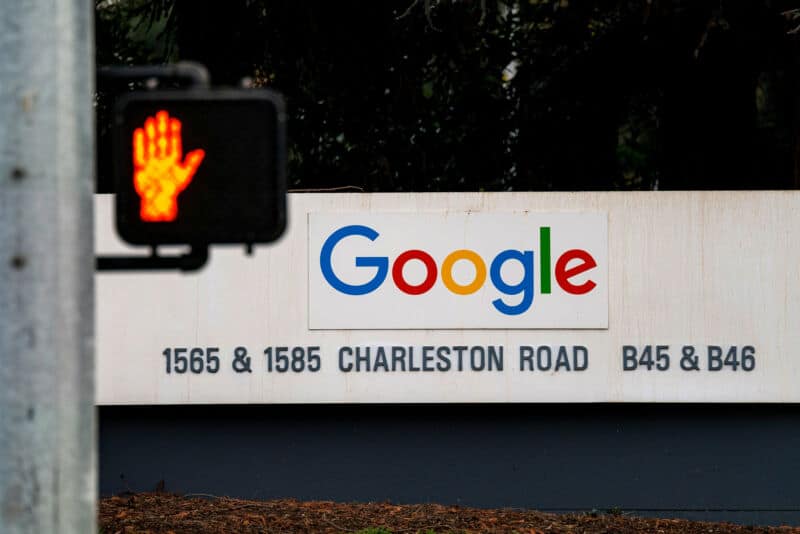More than three dozen state attorneys general last week filed an antitrust suit against Google, accusing the tech behemoth of a slew of anticompetitive behaviors. Among those behaviors, a new report finds, is an explicit agreement from Google to work with Facebook not only to divide the online advertising marketplace, but also to fend off antitrust investigations.
Facebook and Google agreed in a contract to “cooperate and assist each other in responding to any Antitrust Action” and “promptly and fully inform the Other Party of any Governmental Communication Related to the Agreement,” according to an unredacted draft copy of the lawsuit obtained by The Wall Street Journal.
The final version of the suit made public last week (PDF) alleged that Google and Facebook signed a secret agreement in 2018 that “fixes prices and allocates markets between Google and Facebook as competing bidders in the auctions for publishers’ Web display and in-app advertising inventory.”
In short, the suit claims, Facebook in 2017 figured out a new ad-bidding tactic, called header bidding. Google found this to be an “existential threat” and signed a contract with Facebook: in exchange for Facebook not using header bidding, Google would provide Facebook with certain advantages over other auction participants, as well as a portion of the money generated by the ad auctions.
“Google publicly misrepresents that all bidders in publishers’ auctions compete on an equal footing,” the suit adds. “Given the scope and extensive nature between the two companies, Google and Facebook were highly aware that their agreement could trigger antitrust violations. The two companies discussed, negotiated, and memorialized how they would cooperate with one another,” it continues, before becoming redacted to hide specifically how or on what the companies would cooperate.
According to the unredacted draft suit, the WSJ reports, sections included in the final version include an annual price tag on that deal—Facebook promised to spend at least $500 million per year on Google advertising—and a reference to Facebook chief operating officer Sheryl Sandberg signing the deal with Google herself, telling Facebook CEO Mark Zuckerberg in an email that the agreement “is a big deal strategically.”
An internal Facebook document reportedly described the agreement as “relatively cheap” as compared to actually competing against Google, and a Google presentation described the deal as working to “build a moat.”
In a statement to the WSJ, a Google spokesperson said the allegations were inaccurate and that the deal with Facebook was not particularly secret, telling the paper, “There’s nothing exclusive about [Facebook’s] involvement and they don’t receive data that is not similarly made available to other buyers.”
Facebook similarly disputed the allegations, with a spokesperson telling the WSJ, “Any allegation that this harms competition or any suggestion of misconduct on the part of Facebook is baseless.”
Super-duper illegal
Antitrust law isn’t just about monopolies; the law instead is concerned with corporate behavior, particularly abuse of power. If you just happen to grow naturally into market dominance, that’s fine. If you use anticompetitive tactics to maintain your dominance, however, that’s against the law.
There’s a lot of room for argument and interpretation within competition law. Building a legal case for both potential and actual harms to consumers and to other businesses is tricky work in most instances, and antitrust enforcement is rarely straightforward, as we most often see in major merger cases.
But there is one category of antitrust law that is straightforward, if proven, and that has to do with how companies and their competitors work together to corner a marketplace. “For the most blatant agreements not to compete, such as price fixing, bid rigging, and market division, the rules are clear,” the Federal Trade Commission’s competition guidance explains. “The courts decided many years ago that these practices are so inherently harmful to consumers that they are always illegal, so-called per se violations.”
At this time, the states’ allegations against Google (and Facebook) are just that: allegations. It is not yet proven whether the agreements between Facebook and Google were anticompetitive or aboveboard, and the trial in the Google antitrust suit isn’t expected to begin until September 2023—almost three years from now.

